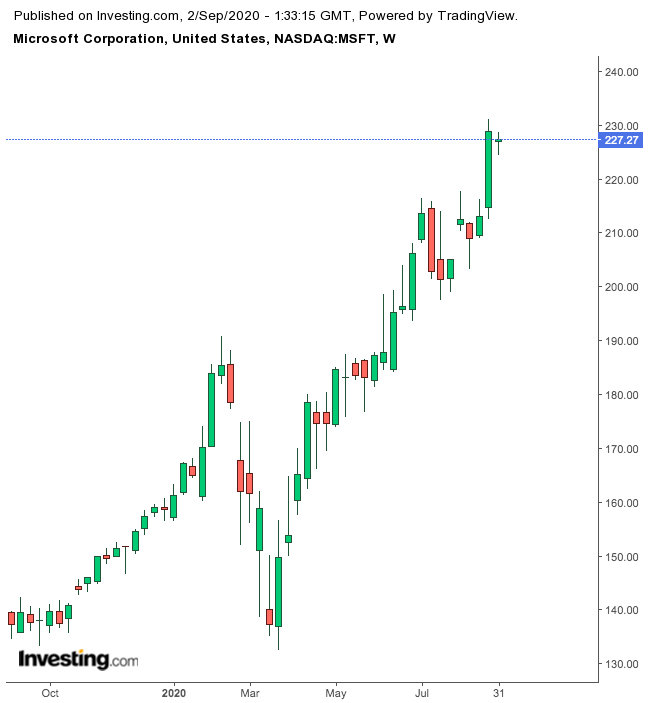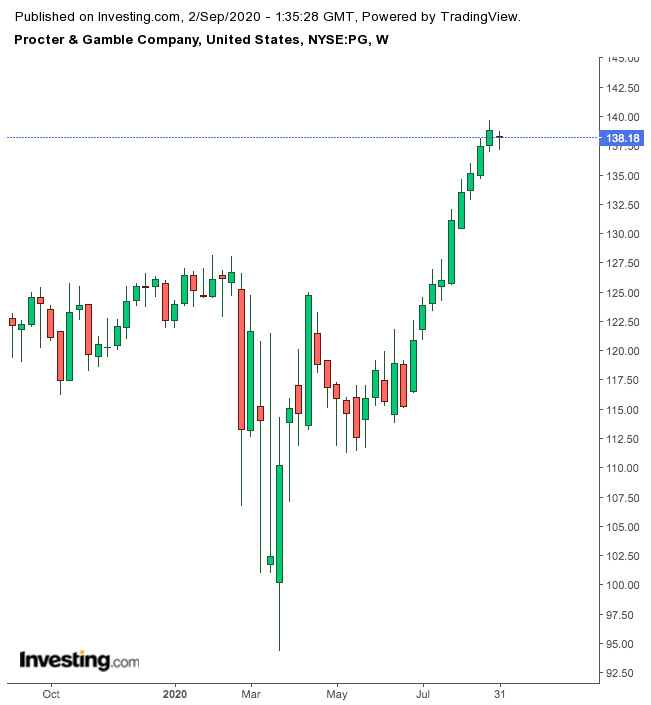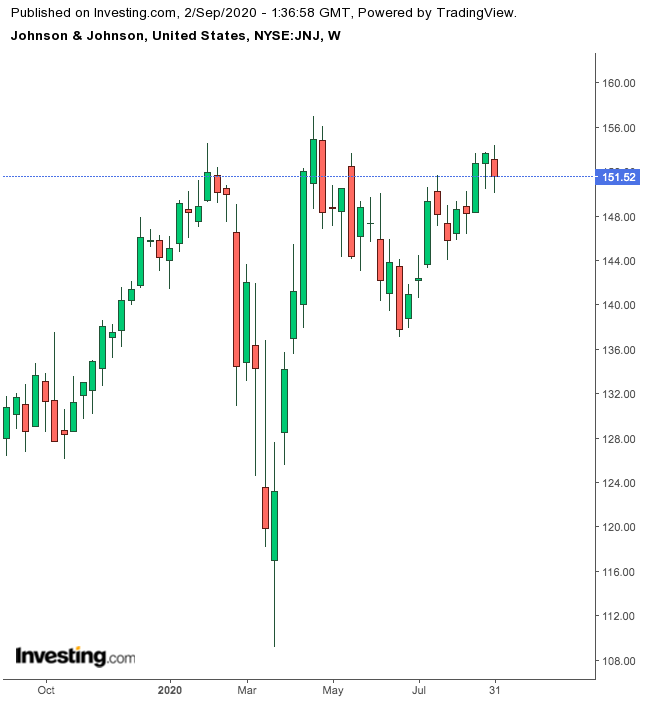If you are averse to risks and plan to take a solo retirement journey, there aren't many ways right now to put together a decent income stream.
We are living in an environment of persistently low interest rates, where savings accounts pay close to zilch, and where the return on government bonds has been extremely low. This situation is likely to persist as central banks keep interest rates near zero to shore up the economy against the fall-out from the coronavirus pandemic.
However, investing in dividend-growth stocks offers one way to build wealth for your golden years. Companies that offer regular dividend increases tend to run mature businesses that could provide stability and growth for your portfolio.
Keeping these benefits in mind and, given taking into account one's own risk-appetite, here are our picks for the three top dividend-growth stocks to should consider adding to a long-term portfolio.
1. Microsoft
Many investors mistake Microsoft (NASDAQ:MSFT) for a pure technology play in a great growth mode, which could be traded for quick gains. But in our view, Microsoft is also a great income stock to buy and hold over the long run.
There's no doubt the company has rewarded its investors with huge gains over the past five years as its shares increased more than 400%. The company has benefited from a surge in technology investments, its leading market share in the cloud computing and the strength of its core Office products.
Microsoft also has an 82% share of the desktop operating system market, generating massive amounts of recurring cash for this company. Office, which is now a subscription-based service for Microsoft’s millions of home and corporate users, continues to be a powerful driver of earnings.
If you are an income investor, you need to find companies like Microsoft. These are the giants that have the power to defend their businesses and pay you for the rest of your life.
Microsoft has an excellent track record when it comes to rewarding investors. Since 2004, when it first began paying a dividend, the company’s payout has swelled by early five-fold.
Dividend growth has been supported by a low payout ratio and strong underlying businesses.

With an annual dividend yield of under 1%, Microsoft pays a quarterly dividend of $0.51 per share. That yield may look small to many investors, but don’t forget that Microsoft is still growing, while offering great upside potential, too.
Including dividend payments, Microsoft has delivered 420% in total returns over the past five years. Microsoft shares closed yesterday at $227.27.
2. Procter & Gamble
Consumer staple giant Procter & Gamble (NYSE:PG) is a great income stock worth stashing in a buy-and-hold portfolio, where it can sit quietly and earn growing pay-outs.

P&G stock, which closed yesterday at $138.18, currently yields 2.29%. It has increased its dividends for 61 consecutive years, a track record few companies can match.
This consistent dividend growth also shows how powerful the company’s cash-flow generation is. Its range of products, which includes globally recognized brands—like Pampers diapers, Tide laundry detergent and Charmin toilet paper—is strong enough to sustain revenue growth through wars, recessions and market downturns.
The strength of P&G’s consumer brands was evident during the current health crisis. The consumer giant has been among the few companies that has maintained their full-year earnings guidance throughout the pandemic, benefiting from the panic-buying of toilet paper and cleaning products, as the COVID-19 virus spread.
With a pay-out ratio of 66%, the company has enough space to continue growing its income stream for investors. Over the past decade, pay-outs have doubled to $0.79 per share quarterly.
3. Johnson & Johnson
When deciding about a dividend-growth stock, investors should focus on three key factors to eliminate bad choices: the forward dividend yield, the cash dividend payout ratio (the percentage of its free cash flow spent on dividends) and the track-record of dividend growth.
The world’s largest maker of both consumer and pharmaceutical health-care products, Johnson & Johnson (NYSE:JNJ), meets all three requirements. The company has raised its dividend every year for the past 58 years.
The current public-health environment further strengthens J&J’s position, where it has benefiting from strong demand for its over-the-counter products. J&J makes everything from innovative cancer therapies to medical devices and over-the-counter staples, like pain reliever Tylenol.
In April, J&J increased its quarterly dividend by 6.3% to $1.01 a share from $0.95. Trading at $151.52, its annual dividend yield translates into 2.63%.

Bottom Line
Buying dividend-growth stocks should be a critical component of your investing strategy for retirement. Their steadily increasing pay-outs will help expand wealth, while providing a hedge against economic uncertainty.
